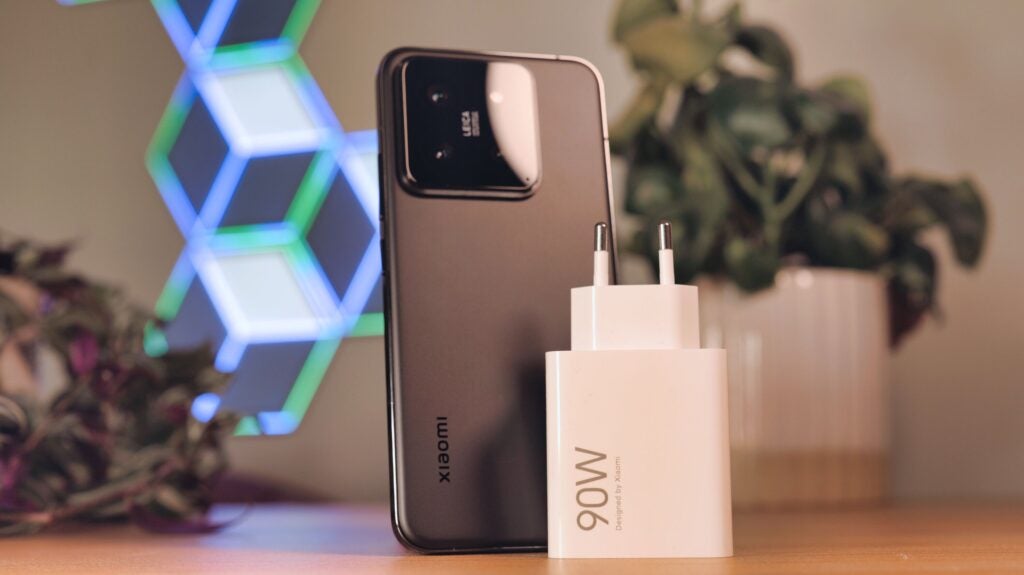Following the launch of the Xiaomi 15 handset, we’re curious to see how it really differs from its predecessor, the Xiaomi 14.
Although we haven’t reviewed the new Xiaomi 15 yet, we gave the Xiaomi 14 a near-perfect 4.5-star rating and concluded that it “delivers a true flagship experience with tonnes of power, great cameras and speedy charging.”
We’ve highlighted the main differences between the Xiaomi 15 and Xiaomi 14 below, so you can see how the two really differ.
Price
At the time of writing, the Xiaomi 15 is only available in China however we expect the handset to launch globally in the coming weeks. Its current RRP starts at 4499 RMB which roughly converts to £484/$626.
With this in mind, the new Xiaomi 15 may be much cheaper than the Xiaomi 14, as the latter’s RRP currently starts at £849. However, as we can only offer a rough conversion at this time, we’ll have to wait until the Xiaomi 15 is launched elsewhere.
The Xiaomi 15 runs on the Snapdragon 8 Elite platform
The Xiaomi 15 is among the first smartphones to run on Qualcomm’s new flagship chipset: Snapdragon 8 Elite processor. An upgrade from last year’s Snapdragon 8 Gen 3 which not only powered the Xiaomi 14 but also many of the best Android smartphones of 2024, Snapdragon 8 Elite shares the same foundation as Qualcomm’s PC platform, the Snapdragon X Elite.


Qualcomm promises the processor will bring the most significant performance leap of the last decade, with increased CPU performance by 42% and GPU performance by 44%. over the previous line of chipsets.
Although we haven’t reviewed the Xiaomi 15 yet, we did have a chance to benchmark a Snapdragon 8 Elite reference device and discovered the results surpassed not only MediaTek’s premium offering but even Apple’s A18 Pro.
The Xiaomi 15 has a larger battery
Although it actually weighs slightly less than its predecessor, the Xiaomi 15’s battery is 790mAh larger at 5400mAh. Despite the Xiaomi 14’s 4610mAh battery capacity sounding disappointing, as most Android smartphones at this price point sport at least a 5000mAh cell, it’s worth noting that in use the handset did not disappoint.
Our reviewer found that the phone always saw them through the day, “often with 30% or more remaining capacity, even on days with lots of screen-on time and plenty of camera use.” With this in mind, we hope the Xiaomi 15’s larger battery will provide even more longevity.
Otherwise, both handsets support 90W wired HyperCharge support and 50W wireless HyperCharge, although the latter does require an additional charger.


The Xiaomi 15 has a brighter display
The two handsets boast feature packed displays, each with a slight curvature and a variable refresh rate of 1-120Hz. However, the Xiaomi 15 does achieve a maximum of 3200 nits of brightness which means the display should be perfectly visible, even in direct sunlight.
On the other hand, the Xiaomi 14 reaches a peak of 3000 nits which we found was “always able to compete with the sunlight, and HDR content looks as punchy and dramatic as you’d hope.”


The Xiaomi 15 has a new telephoto lens
Although at first glance the camera hardware of the Xiaomi 15 appears unchanged from the Xiaomi 14, with three 50MP rear lenses, there is a difference with the telephoto sensor. It now uses a new 28nm sensor which supports richer features and achieves a super-large focus range for both telephoto portraits and close-up shots.
Considering we found the Xiaomi 14’s telephoto lens to be “great for close-up shots and portraits”, we are keen to test how well the upgrade fares on the Xiaomi 15.


Early Verdict
Considering how much we enjoyed using the Xiaomi 14, with our reviewer hailing the handset as a “pleasure to use”, the fact the Xiaomi 15 is more of a tweak as opposed to a complete overhaul is understandable.
We’re particularly keen to see just how powerful the new Snapdragon 8 Elite processor is within the handset too. We’ll update this versus once we have the Xiaomi 15 in for testing.




